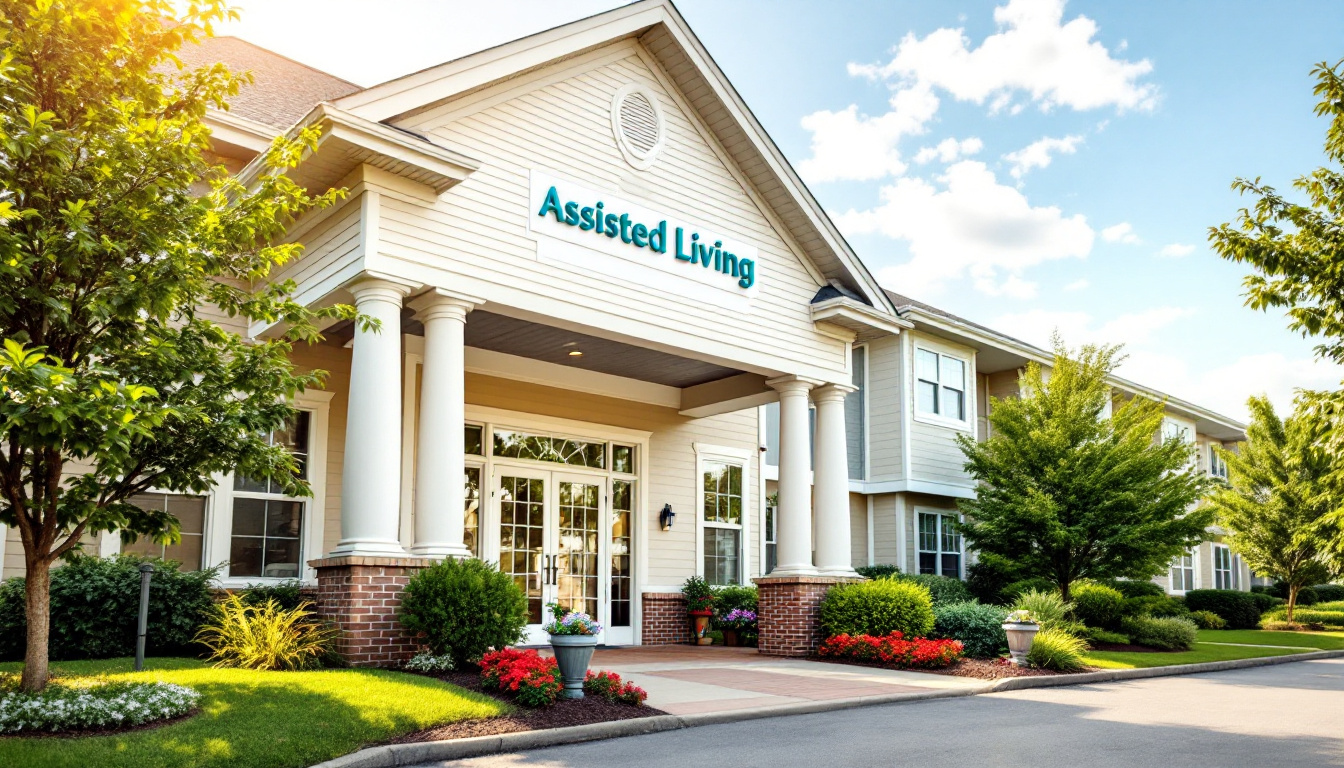How Home-Based Follow-Up Care Supports Senior Recovery
Supporting Seniors in Recovery: The Power of Home-Based Follow-Up Care

Understanding the Importance of In-Home Post-Hospital Support for Seniors
As populations age worldwide, the focus on effective recovery strategies for seniors has intensified. Home-based follow-up care has emerged as a vital component in improving health outcomes, reducing hospital readmissions, and enhancing the physical, emotional, and social well-being of older adults. This article explores how personalized in-home care programs facilitate senior recovery, support independence, and ensure a safer, more comfortable transition from hospital to home environment.
The Role of Emotional and Social Support in Senior Recovery

What emotional and social support does home follow-up care provide to seniors?
Home follow-up care plays a crucial role in supporting seniors emotionally and socially during their recovery process. Regular interactions with dedicated home care nurses and caregivers foster feelings of reassurance and companionship, which are vital for mental health. These professionals develop personal relationships with seniors, taking the time to understand their interests, routines, and emotional needs. This personalized approach helps create a sense of security and comfort, reducing feelings of loneliness and social isolation.
In addition to direct caregiver interactions, involving family members and community resources can significantly strengthen social networks for seniors. Support groups and community programs offer opportunities for social engagement, which can counteract the isolation often experienced during recovery. Maintaining strong social ties has been linked to better physical health outcomes and improved emotional resilience.
Healthcare professionals such as nurses, physicians, psychologists, and psychiatrists contribute by providing specialized emotional support. They address feelings of distress, anxiety, or depression that may arise during recovery, ensuring seniors feel cared for and valued. This holistic approach to recovery emphasizes the importance of social connection and emotional well-being in achieving favorable health outcomes.
Through consistent, compassionate support, home follow-up care creates a nurturing environment that promotes not only physical healing but also mental and emotional strength. Seniors who feel emotionally supported are more likely to adhere to treatment plans, participate actively in rehabilitation, and experience a better quality of life overall.
Personalized Care Plans: Tailoring Recovery to Individual Needs

How do personalized in-home care plans facilitate senior recovery?
Personalized in-home care plans play a crucial role in supporting seniors' recovery by customizing interventions to meet each person's unique health status, lifestyle, and preferences. These tailored approaches allow caregivers and healthcare professionals to address specific medical conditions, such as managing chronic illnesses or post-surgical needs, more effectively. By focusing on individual goals, care plans ensure that medication schedules, physical therapy routines, and nutritional needs are aligned with what works best for the senior.
Involving seniors and their families in the planning process is vital. It fosters trust, ensures that care respects the senior’s wishes, and encourages active participation in their recovery journey. When families are engaged, they can better support adherence to care protocols and recognize early signs of potential complications.
As recovery progresses, these care plans are dynamically adjusted based on ongoing feedback from the senior and monitoring results. Regular reassessment allows for modifying treatment strategies, increasing or decreasing support, and introducing new therapies to optimize outcomes.
Technology has significantly enhanced personalized care through innovations like telehealth and remote monitoring devices. These tools enable care teams to track vital signs, medication adherence, and mobility levels in real-time, providing data-driven insights to refine care plans continually.
Ultimately, personalized care plans reduce hospital readmissions, promote faster healing, and improve overall quality of life for seniors. They create a supportive, responsive environment where recovery is tailored specifically to each individual’s needs, fostering independence, safety, and emotional well-being.
Supporting Rehabilitation at Home with Skilled Care

How do in-home care services support senior rehabilitation?
In-home care services play a vital role in helping seniors recover effectively and comfortably within their familiar environment. They provide personalized, comprehensive support tailored to each individual's recovery needs and goals.
One of the primary functions of in-home care is facilitating participation in specialized therapies such as physical, occupational, and speech therapy. Skilled professionals, including licensed therapists and home health nurses, deliver these services directly at home, ensuring consistent implementation of prescribed exercises and interventions. This continuity helps seniors rebuild strength, improve balance, and regain mobility more efficiently.
Skilled nursing staff and home health aides assist with managing medications, performing wound care, and supporting daily activities. These professionals monitor for potential complications and intervene early if issues arise, significantly reducing the risk of setbacks or readmission to the hospital.
Beyond physical recovery, in-home care promotes independence by encouraging seniors to perform daily tasks safely. They help with activities like dressing, grooming, and mobility exercises, which are vital for regaining confidence and functional ability.
Emotional support is another crucial aspect. Caregivers foster motivation and mental well-being, creating a positive environment that encourages active participation in recovery routines. This holistic approach not only speeds physical recovery but also enhances emotional resilience.
Overall, in-home care services offer a comprehensive support system that promotes faster, safer recovery while maintaining dignity and comfort for seniors during their rehabilitation journey.
Creating a Safe and Supportive Environment for Recovery

How does home-based care support seniors' independence and comfort during recovery?
Home-based care significantly contributes to a senior's ability to recover in a comfortable and safe environment. When seniors remain in familiar surroundings, they experience decreased stress and anxiety, which positively impacts their overall well-being. Personalized assistance with daily activities such as bathing, dressing, and mobility helps maintain their dignity and independence. Moreover, professionals assist in medication management and health monitoring, reducing the risk of complications.
Environmental modifications at home—like installing grab bars in bathrooms, improving lighting throughout the house, and removing tripping hazards—are essential in preventing falls and ensuring safety. These adjustments empower seniors to perform daily tasks with confidence while minimizing injury risk.
Assistive devices such as ergonomic furniture, walking aids, and easy-to-reach storage further support mobility and safety. When combined with emergency response systems like medical alert devices, seniors have rapid access to help if needed.
Community resources, family involvement, and technology integrations enhance emotional support and social engagement, which are vital during recovery. These elements create a holistic care environment that promotes quicker healing, independence, and a higher quality of life.
By providing tailored interventions that adapt to individual needs, home-based care transforms a typical living space into a secure haven conducive to effective recovery.
Reducing Hospital Readmissions Through Continuous Monitoring
How does home care contribute to reducing hospital readmissions for seniors?
Home care plays a vital role in lowering the chances of seniors returning to the hospital after discharge. It achieves this through ongoing, attentive management of health conditions that might otherwise worsen without prompt intervention.
One of the main strategies is regular health assessments conducted by professional caregivers and home healthcare providers. These assessments include vital sign checks, wound monitoring, and evaluating the effectiveness of prescribed therapies. This consistent monitoring helps identify early signs of potential complications, allowing for swift action before issues escalate.
Medication adherence and management are also central to preventing avoidable hospital visits. Caregivers remind seniors to take their medications correctly, manage any side effects, and coordinate with healthcare providers to adjust treatments as needed. Proper medication management reduces the risk of adverse reactions and deterioration.
Environmental safety checks are another essential aspect. Home caregivers ensure that the living space is hazard-free, reducing fall risks and other accidents that could lead to emergency hospitalization. Installing grab bars, removing loose rugs, and ensuring proper lighting are common safety measures.
In addition to physical health management, home care includes patient education, empowering seniors and their families to recognize warning signs and respond appropriately. By promoting healthy habits and stress management, home care supports overall well-being.
Integrated use of technology, such as remote monitoring systems and emergency alert devices, enhances ongoing supervision. These tools can alert caregivers or healthcare providers of urgent changes in an individual's condition, allowing for immediate attention.
Overall, by providing personalized, continuous support through regular assessments, medication oversight, safety evaluations, and early issue detection, home care significantly reduces the risk of rehospitalization. This proactive approach fosters faster, safer recoveries and maintains seniors' independence in their familiar home environment.
The Holistic Approach: Combining Medical and Emotional Support

How does integrating clinical care and emotional support benefit senior recovery?
Combining medical treatments with emotional support creates a comprehensive recovery environment for seniors. Professional home health providers not only deliver essential clinical services such as medication management, wound care, and therapy but also provide companionship and emotional reassurance. This dual approach reduces feelings of loneliness, anxiety, and depression, which are common during recovery.
Familiar surroundings at home foster a sense of safety and comfort, improving mental health and supporting physical healing. When seniors feel emotionally supported, they are more likely to adhere to care plans, maintain motivation for rehabilitation exercises, and stay engaged in their recovery process.
How does team-based care coordination enhance recovery?
Effective recovery depends on a coordinated team of healthcare providers, caregivers, family members, and specialists. In-home care professionals, including nurses, therapists, and case managers, collaborate closely, sharing medical insights and adjusting care strategies promptly.
This integrated communication ensures therapy sessions align with medical recommendations, medication schedules are synchronized, and any health concerns are addressed swiftly. Regular updates and holistic assessments foster personalized interventions, leading to more efficient healing and fewer complications.
What is the impact of continuous, personalized support on overall health?
Ongoing, tailored support improves recovery outcomes by maintaining consistency in care routines. Personal care plans are customized to each senior's specific needs, incorporating medication timings, dietary preferences, mobility exercises, and mental health considerations.
Continuous monitoring allows caregivers to detect early signs of issues such as infections or side effects, prompting timely intervention. This consistency reduces hospital readmissions and enhances overall well-being.
Support from family and professionals in familiar settings also promotes dignity and independence, which are critical for mental health and motivation.
How do these combined efforts influence recovery success?
Integrating clinical and emotional care in a home setting accelerates recovery, improves management of chronic conditions, and enhances patient satisfaction. Studies indicate that seniors receiving this comprehensive support experience faster recovery rates — around 80% for post-operative cases and 75% for chronic disease management — compared to traditional hospital care.
Moreover, home-based follow-up care reduces hospital readmissions by approximately 20%, lowering risks of hospital-acquired infections and other complications.
The individualized nature of in-home services encourages adherence to treatment protocols, supports healthier lifestyle habits, and strengthens emotional resilience.
In essence, this holistic approach fosters a supportive environment where seniors recover more safely and comfortably, with a better quality of life. The emotional comfort, coupled with continuous medical oversight, helps seniors regain their independence and confidence faster.
What are the overall benefits of personalized, ongoing support?
Personalized support at home allows for flexible adjustments based on the individual's recovery pace and needs. It encourages active participation in health management, enhances safety, and emphasizes patient dignity.
Family involvement, supported by professional guidance, alleviates caregiver stress and creates a network of dependable care.
Collectively, these factors contribute to higher satisfaction rates, better health outcomes, and reduced healthcare costs.
| Aspect | Benefits | Additional Details |
|---|---|---|
| Medical Care | Medication management, wound care, therapy | Customized to patient needs |
| Emotional Support | Companion care, mental health check-ins | Reduces loneliness and anxiety |
| Care Coordination | Team-based care, seamless communication | Improves treatment adherence |
| Monitoring & Adjustment | Early detection of issues, responsive support | Prevents complications |
| Patient Outcomes | Faster recovery, lower readmission rates, higher satisfaction | Enhances overall quality of life |
This integrated and ongoing support system underscores the importance of a personalized, holistic approach to senior recovery at home, promoting health, independence, and emotional well-being.
The Future of Senior Recovery: Embracing Home-Based Care
As healthcare continues to evolve, the importance of home-based follow-up care for seniors becomes increasingly evident. It offers a holistic approach that combines medical, emotional, and social support, all delivered within the comfort of one's home. By reducing hospital readmissions, promoting independence, and enhancing overall well-being, personalized in-home care is shaping the future of senior recovery. Embracing these services not only improves health outcomes but also preserves dignity, autonomy, and quality of life for older adults, making aging in place a viable and desirable option for many.
References
- How In-Home Care Supports Recovery & Rehabilitation?
- Services for Older Adults Living at Home | National Institute on Aging
- The Benefits of Home-Based Therapy When it Comes to Recovery
- How Home Care And Rehab Can Benefit Each Other?
- How In-Home Care Can Support Post-Hospital Recovery
- How Home Health Services Can Speed Up Recovery After Surgery ...
- How In-Home Recovery Care Supports Patients
- The Role of In-Home Care in Preventing Hospital Readmissions
- Home Care Impact on Recovery of Patient (A Statistics Report)
- After-Surgery Home Care: Tips for Seniors and Caregivers






































































































